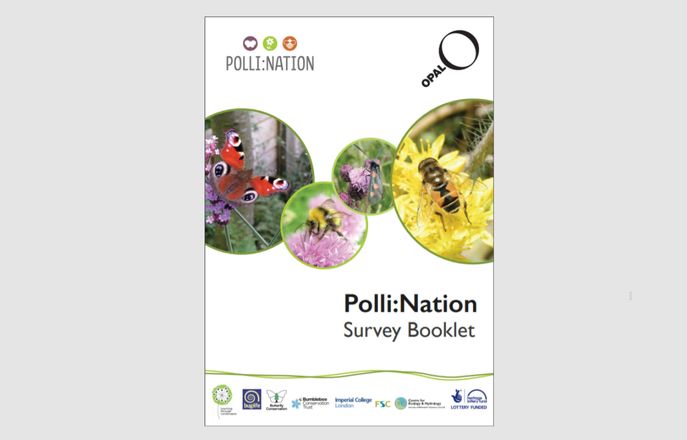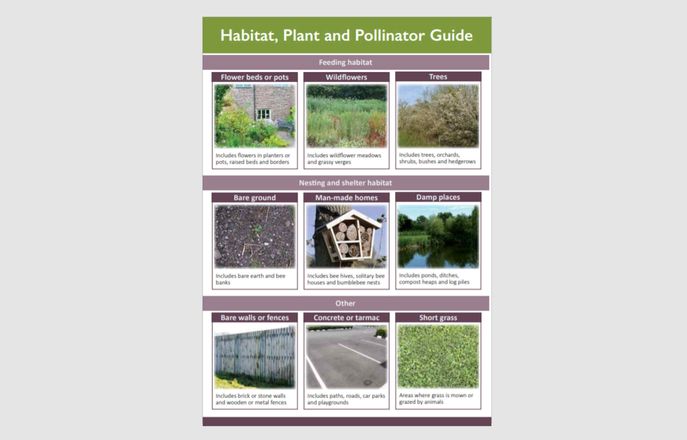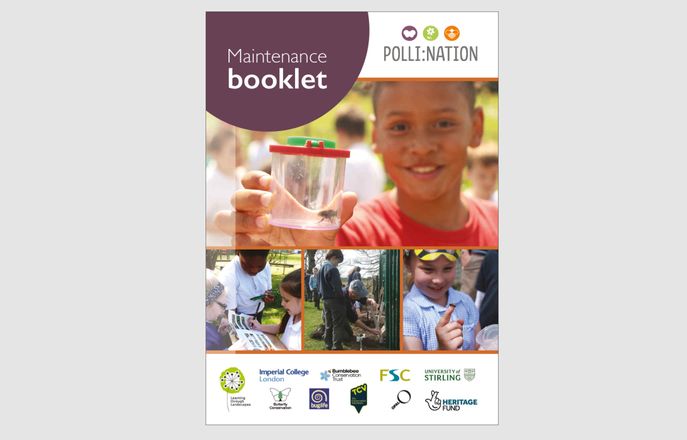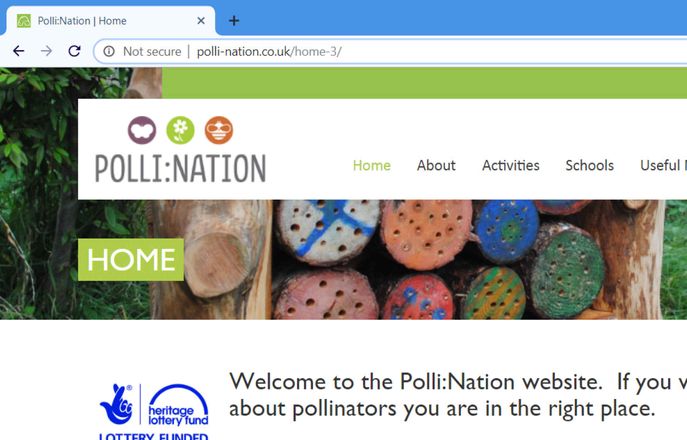 Developed and delivered in partnership with Learning through Landscapes, Buglife, Butterfly Conservation, University of Stirling, TCV, the Bumblebee Conservation Trust and the Field Studies Council, Polli:Nation was a Heritage Lottery-funded, UK-wide initiative supporting pupils from 260 schools to turn their school grounds and other local walk-to spaces into pollinator friendly habitats. To do this schools were encouraged to:
Developed and delivered in partnership with Learning through Landscapes, Buglife, Butterfly Conservation, University of Stirling, TCV, the Bumblebee Conservation Trust and the Field Studies Council, Polli:Nation was a Heritage Lottery-funded, UK-wide initiative supporting pupils from 260 schools to turn their school grounds and other local walk-to spaces into pollinator friendly habitats. To do this schools were encouraged to:
- Survey their patch using the OPAL Polli:Nation Survey
- Make improvements for pollinators on their patch
- Use the Polli:Nation Survey to monitor habitats after making habitiat changes
In addition, the Polli:Nation Survey and associated resources were used by schools and other groups across the UK, engagement with which was facilitated by OPAL Community Scientists based at OPAL Partner organisations throughout England, Scotland, Wales and Northern Ireland.
Developed as a cross-curricula secondary and primary school project, Polli:Nation gave pupils direct hands-on experiences, from creating vertical green walls and night-blooming flower beds to lobbying to change school maintenance regimes and debating pesticide use. Pupils learnt about the role pollinating insects play in ecosystem services, enabling them to contextualise this in the choices and actions they take.
Alongside creating a network of knowledgeable and enthused young activists, the ambition of this programme was to utilise school grounds to form local green corridors and ‘stepping stones’, enabling species to move between core areas, thereby contributing to the overall aim of the project to increase the numbers of pollinating insects in the UK.
Survey resources
Additional Resources
Survey results
 Some key findings:
Some key findings:
- Biological identification experience has risen by 22% in the three years since the project began (2016-2019)
- 18,866 pollinators were recorded over three years from 2867 quadrats
- Significantly more pollinators were recorded after improvements due to increasing area of pollinator feeding habitats
- Planting wildflowers has positive effects on overall pollinator abundance and creating damp places has positive impacts on diversity
- Over 14,500m2 of wildflowers were recorded as part of the Polli:Nation survey
- There was a significant increase in the area of feeding habitat (and a significant decrease in the average area of man-made features; bare walls/fences, concrete/tarmac, short grass) following site improvements
Reports and publications
- Cruickshanks, K., Lakeman Fraser, P., Dennis, E., Bulman, C., Burgess, S., Townsend, S., Evans, L. and Jackson, M. (2019) PolliNation Results 2018
- PolliNation Evaluation Report
Award-winning project

In 2018 the Polli:Nation project won the “Best Environmental Project” category at the National Lottery Good Causes awards, beating 700 other projects and six other finalists.
Speaking of the award, Carley Sefton, CEO of Learning through Landscapes (lead project partner), said:
"The project has empowered children to tackle one of our biggest environmental issues head on. As pollinators continue to decline globally, our eco-system finds itself under catastrophic threat. Polli:Nation has not only taught children about the urgency and importance of preserving our most important species, but it has also given them the chance to physically save them."



